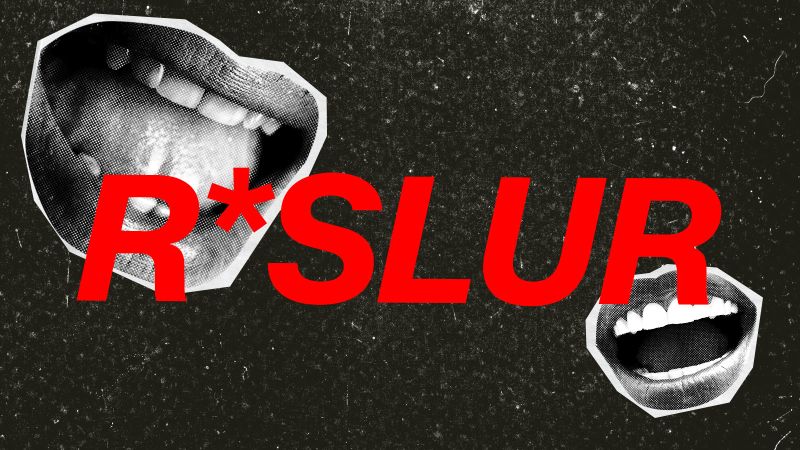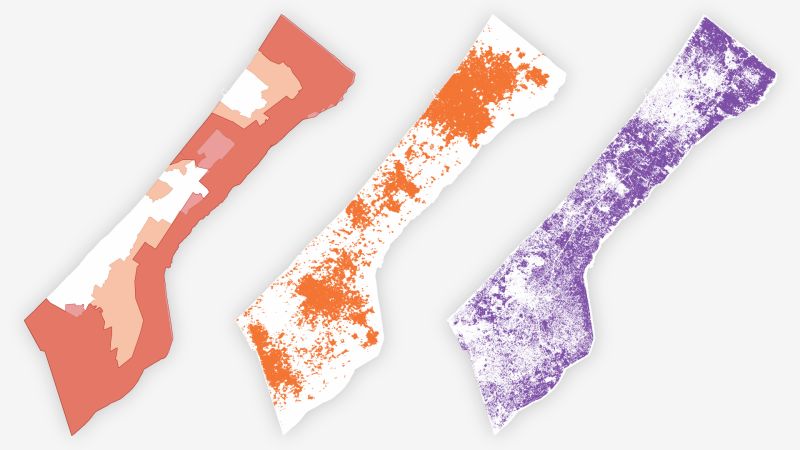How The R-Word Became Normalized: A Troubling Trend

Welcome to your ultimate source for breaking news, trending updates, and in-depth stories from around the world. Whether it's politics, technology, entertainment, sports, or lifestyle, we bring you real-time updates that keep you informed and ahead of the curve.
Our team works tirelessly to ensure you never miss a moment. From the latest developments in global events to the most talked-about topics on social media, our news platform is designed to deliver accurate and timely information, all in one place.
Stay in the know and join thousands of readers who trust us for reliable, up-to-date content. Explore our expertly curated articles and dive deeper into the stories that matter to you. Visit Best Website now and be part of the conversation. Don't miss out on the headlines that shape our world!
Table of Contents
How the R-Word Became Normalized: A Troubling Trend
The casual use of the r-word, a derogatory slur targeting people with intellectual disabilities, is on the rise, and it's a deeply troubling trend. While many are aware of its offensive nature, its normalization in everyday language highlights a significant societal failure to understand and respect the lived experiences of this community. This isn't just about word choice; it's about the perpetuation of harmful stereotypes and the erosion of inclusivity.
This article will delve into the insidious ways this slur has become normalized, explore its damaging consequences, and propose steps towards reversing this concerning trend.
The insidious creep of normalization
The r-word, historically used to demean and belittle individuals with intellectual disabilities, has unfortunately infiltrated mainstream culture. Its presence in popular media, casual conversation, and even amongst well-meaning individuals signifies a significant disconnect from the realities faced by this vulnerable population. This normalization often occurs subtly. It might start with a joke, a seemingly harmless utterance, or an unaware misuse in casual conversation. However, these seemingly insignificant instances contribute to the overall dehumanization of individuals with intellectual disabilities. The impact is far-reaching, eroding the respect and dignity that everyone deserves.
The devastating impact on individuals and communities
The consequences of normalizing the r-word extend far beyond simple offense. It:
- Perpetuates harmful stereotypes: The casual use of the slur reinforces negative and inaccurate stereotypes about people with intellectual disabilities. This can lead to prejudice, discrimination, and social exclusion.
- Impacts self-esteem and mental health: Hearing the r-word used casually can be deeply hurtful and damaging to the self-esteem of individuals with intellectual disabilities and their families. It contributes to feelings of shame, isolation, and depression.
- Limits opportunities: The pervasive use of the r-word can create an environment of negativity and prejudice, limiting opportunities for education, employment, and social inclusion for people with intellectual disabilities.
- Undermines advocacy efforts: The continued normalization of the r-word undermines the hard work of advocacy groups fighting for the rights and inclusion of people with intellectual disabilities. Their efforts to promote understanding and acceptance are actively countered by this casual disregard for the impact of language.
Breaking the cycle: A call for change
Combating the normalization of the r-word requires a multi-pronged approach:
- Education and awareness: We need increased public education about the harmful impact of using this slur. This includes incorporating discussions about respectful language and disability awareness into schools and workplaces.
- Promoting inclusive language: Actively promoting the use of respectful and person-first language (e.g., "person with a disability" instead of "disabled person") is crucial. Resources like offer valuable guidance on inclusive language.
- Holding individuals accountable: We need to call out the use of the r-word whenever we hear it, even in seemingly casual settings. This demonstrates that the language is unacceptable and creates a culture of accountability.
- Amplifying the voices of people with intellectual disabilities: It is vital to listen to and amplify the voices of people with intellectual disabilities and their families, allowing their lived experiences to shape our understanding and actions.
The normalization of the r-word is not a victimless crime. It is a symptom of a larger societal problem – a lack of empathy and understanding towards individuals with intellectual disabilities. By actively working towards education, promoting inclusive language, and holding ourselves accountable, we can collectively break the cycle and create a more respectful and inclusive society for everyone. Let's choose our words carefully and contribute to a future where such hateful language is relegated to the past.

Thank you for visiting our website, your trusted source for the latest updates and in-depth coverage on How The R-Word Became Normalized: A Troubling Trend. We're committed to keeping you informed with timely and accurate information to meet your curiosity and needs.
If you have any questions, suggestions, or feedback, we'd love to hear from you. Your insights are valuable to us and help us improve to serve you better. Feel free to reach out through our contact page.
Don't forget to bookmark our website and check back regularly for the latest headlines and trending topics. See you next time, and thank you for being part of our growing community!
Featured Posts
-
 The Impact Of Israeli Policy On Gaza Visualizing Palestinian Land Constraints
Jun 02, 2025
The Impact Of Israeli Policy On Gaza Visualizing Palestinian Land Constraints
Jun 02, 2025 -
 Sudan Civil War A Photographers Shocking Images Reveal Brutal Reality
Jun 02, 2025
Sudan Civil War A Photographers Shocking Images Reveal Brutal Reality
Jun 02, 2025 -
 Heads Of The Valleys Road A465 Fully Reopens A 23 Year Project Concludes
Jun 02, 2025
Heads Of The Valleys Road A465 Fully Reopens A 23 Year Project Concludes
Jun 02, 2025 -
 Photographer Documents The Horrors Of Sudans Civil War Cnn Report
Jun 02, 2025
Photographer Documents The Horrors Of Sudans Civil War Cnn Report
Jun 02, 2025 -
 Summer Flight Sale Book Your Affordable Vacation Today
Jun 02, 2025
Summer Flight Sale Book Your Affordable Vacation Today
Jun 02, 2025
Latest Posts
-
 Russia Launches Massive Air Strikes On Ukraine Poland Deploys Fighter Jets
Sep 22, 2025
Russia Launches Massive Air Strikes On Ukraine Poland Deploys Fighter Jets
Sep 22, 2025 -
 British Couples Son Freed By Taliban Joyful Reunion In Uk
Sep 22, 2025
British Couples Son Freed By Taliban Joyful Reunion In Uk
Sep 22, 2025 -
 Dealing With Loose Skin A Common Side Effect Of Weight Loss Drugs
Sep 22, 2025
Dealing With Loose Skin A Common Side Effect Of Weight Loss Drugs
Sep 22, 2025 -
 Car And Van Crash On A9 At Slochd Claims Two Lives Couple Named
Sep 22, 2025
Car And Van Crash On A9 At Slochd Claims Two Lives Couple Named
Sep 22, 2025 -
 London Fashion Week Romeo Beckhams Runway Walk And Dame Prues Show Stopping Outfit
Sep 22, 2025
London Fashion Week Romeo Beckhams Runway Walk And Dame Prues Show Stopping Outfit
Sep 22, 2025
